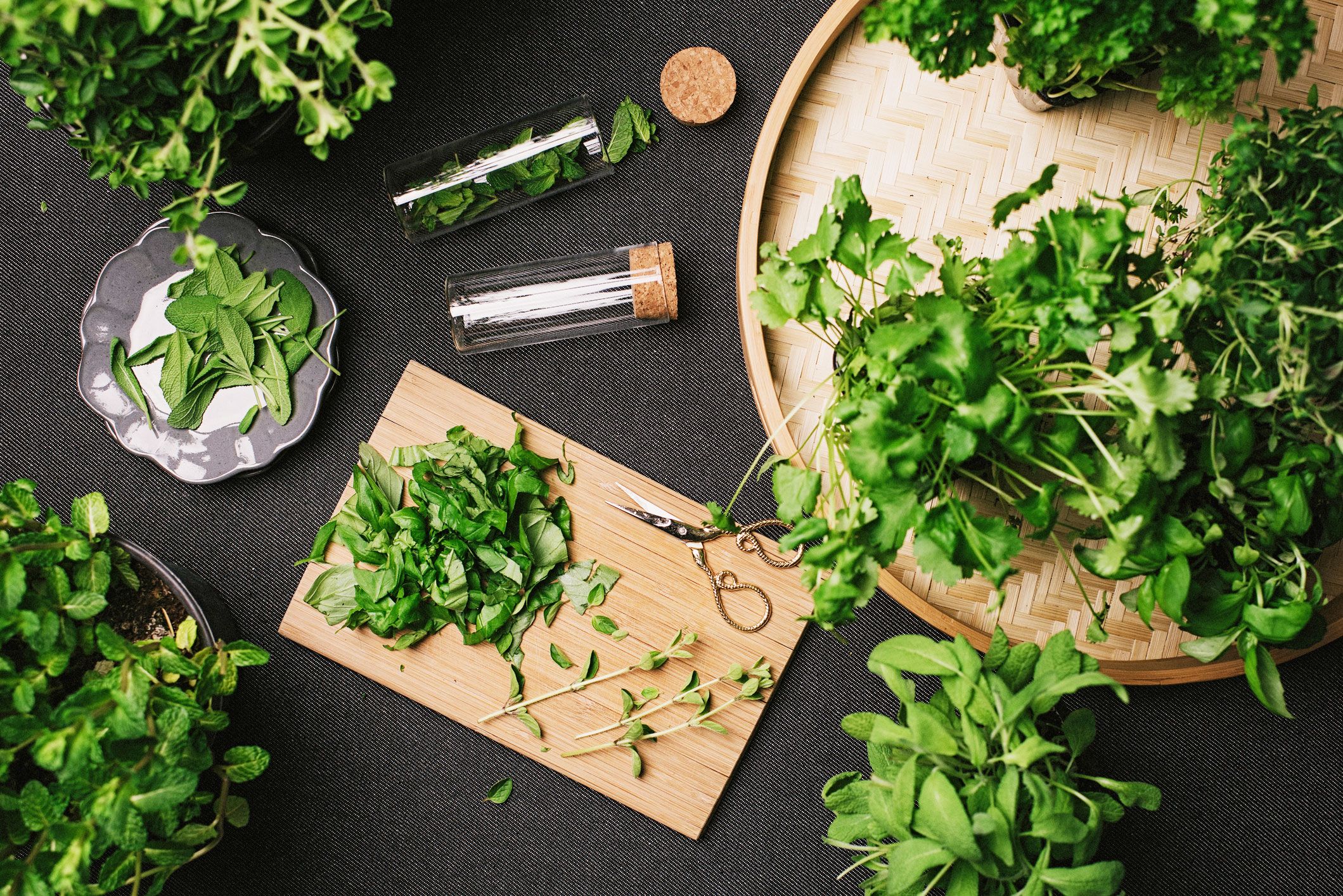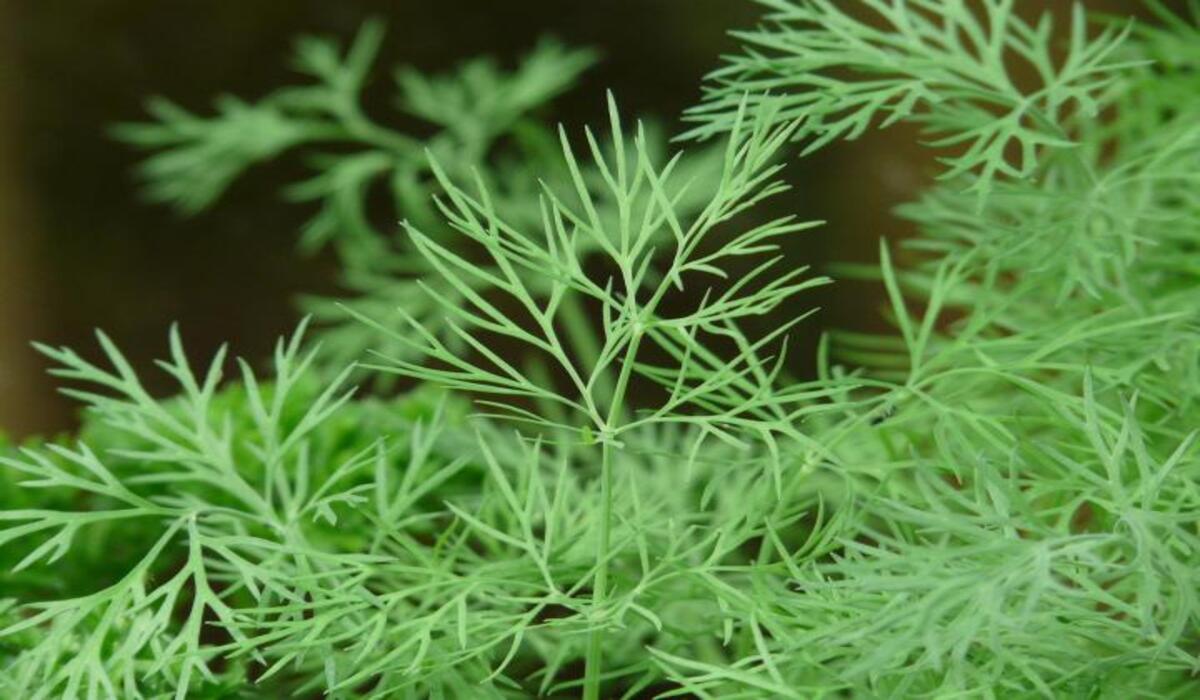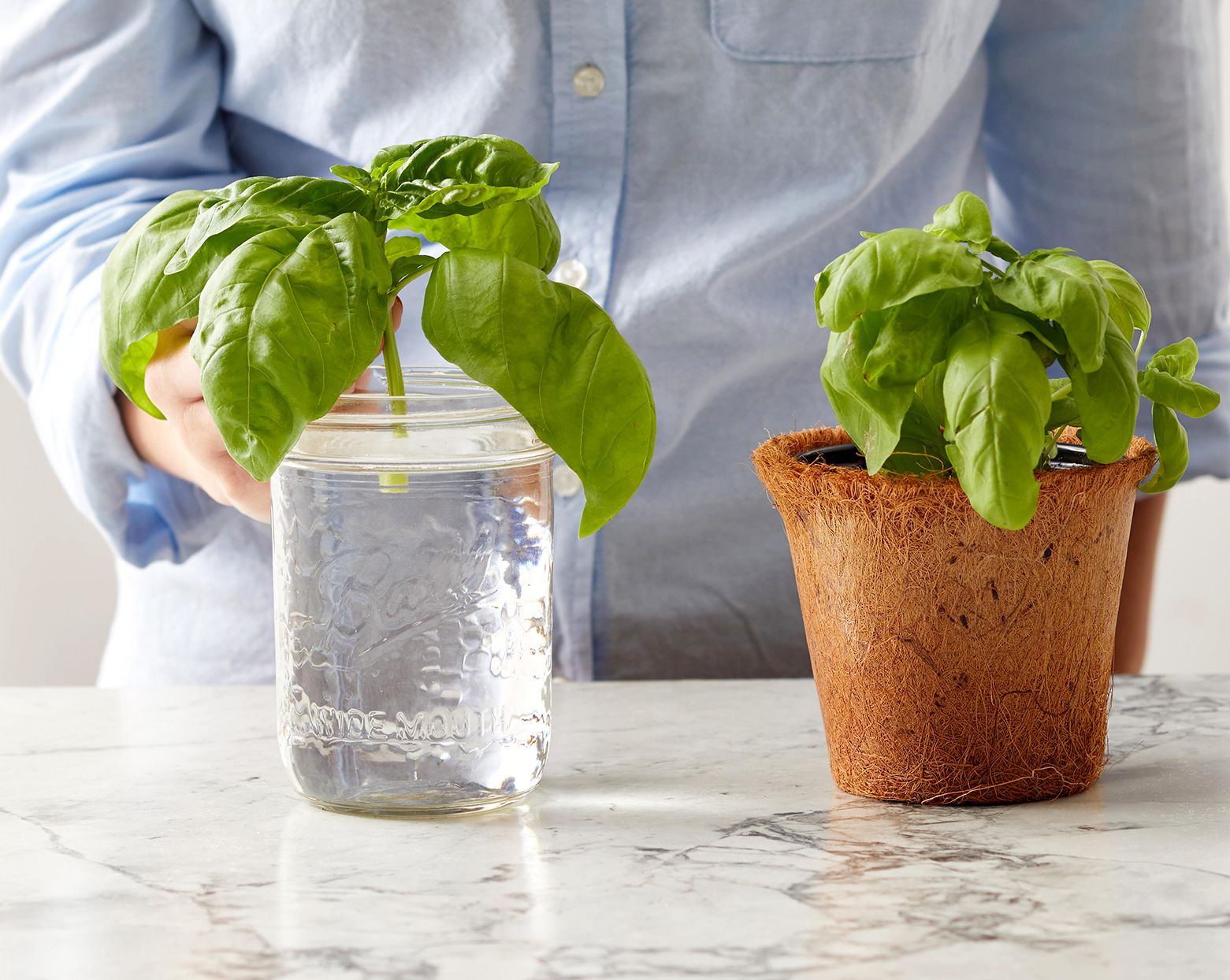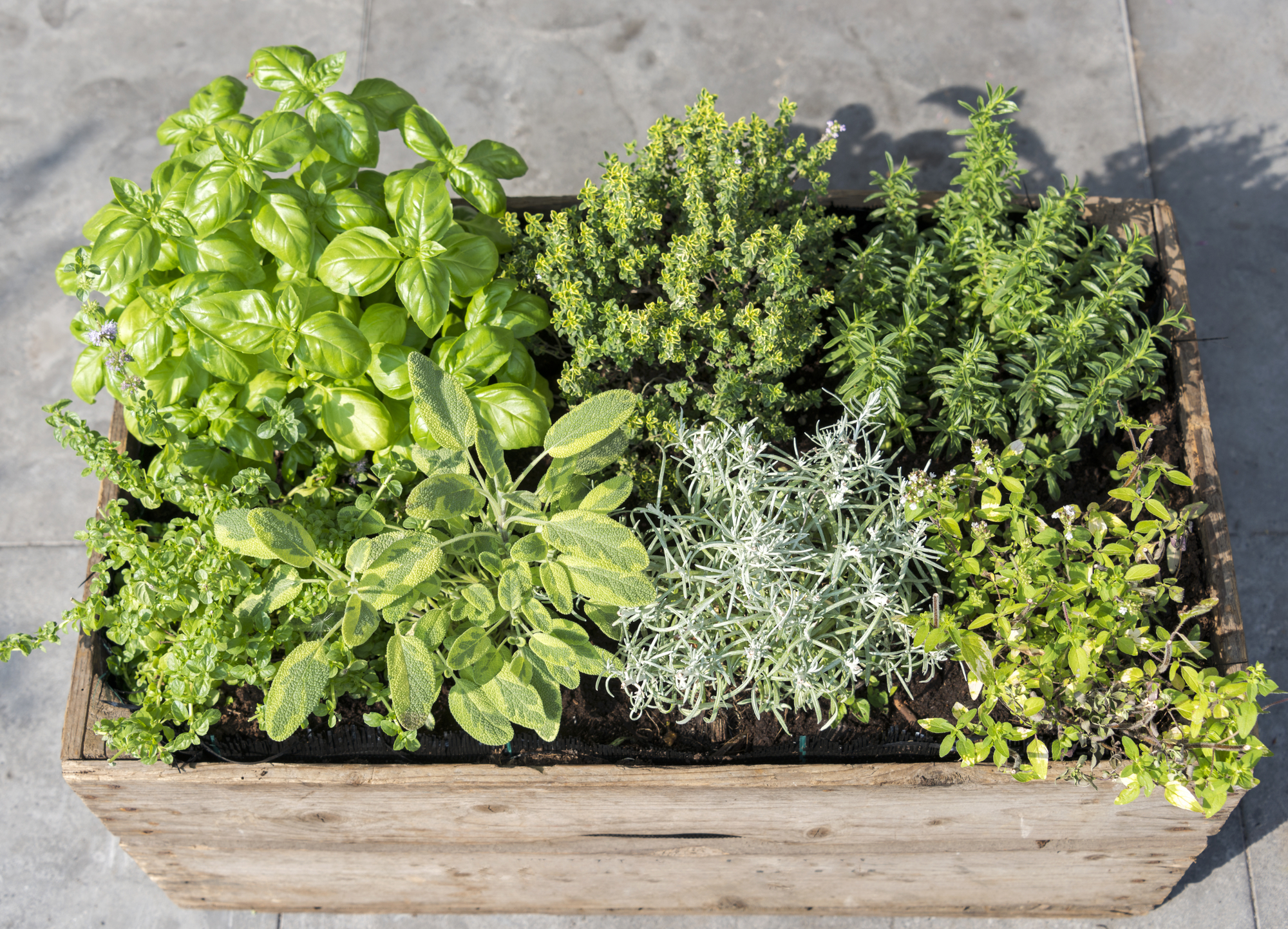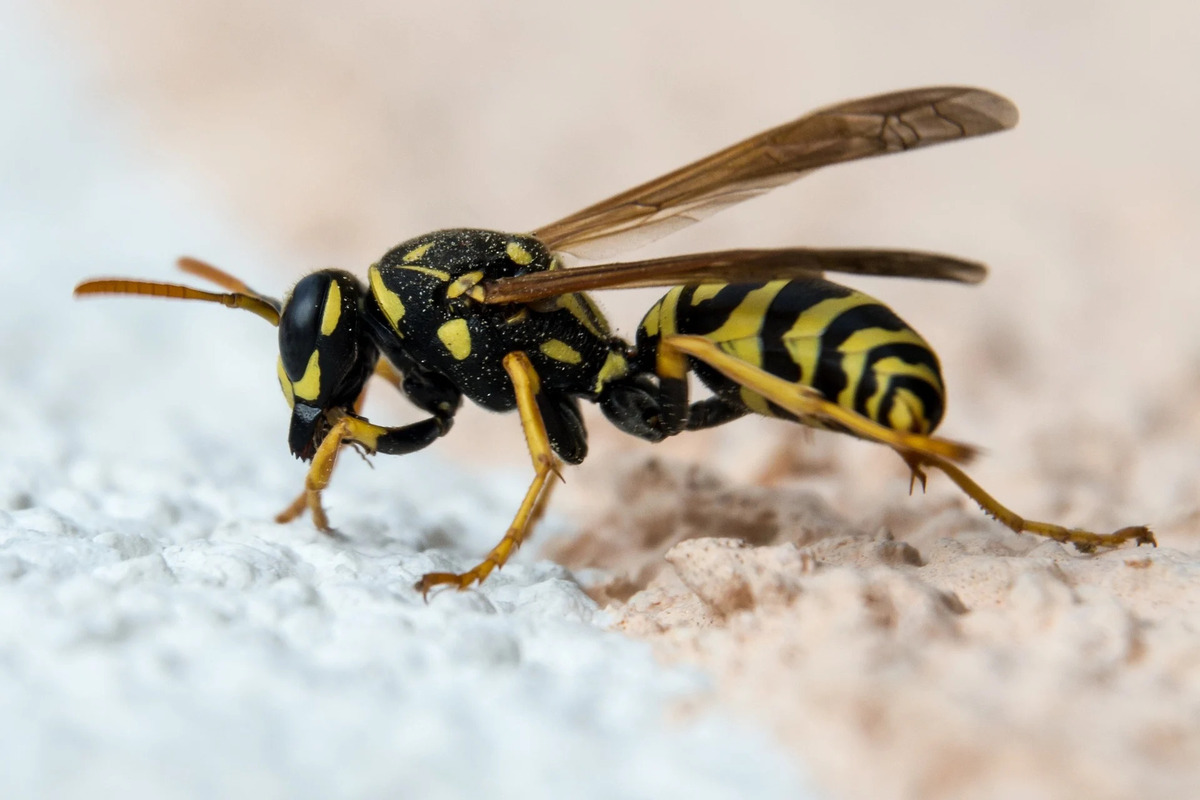Home>Gardening News and Trends>Gardening Trends>What Herbs Can Cats Have
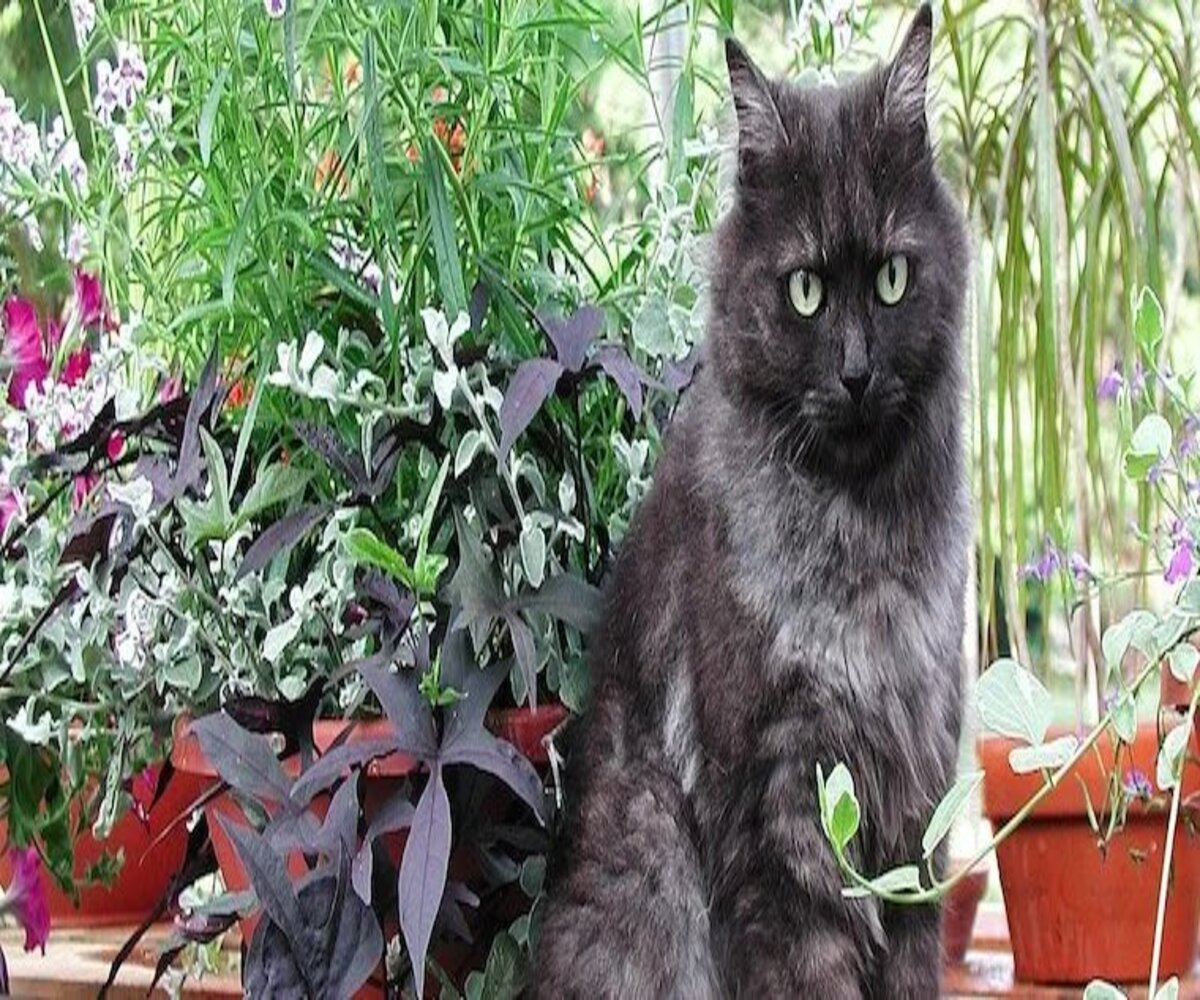

Gardening Trends
What Herbs Can Cats Have
Modified: January 22, 2024
Discover the latest gardening trends and learn what herbs are safe for cats to have in your garden. Explore our guide to create a cat-friendly and stylish outdoor space.
(Many of the links in this article redirect to a specific reviewed product. Your purchase of these products through affiliate links helps to generate commission for Chicagolandgardening.com, at no extra cost. Learn more)
Table of Contents
Introduction
Welcome to the world of cats and herbs! As cat owners, we always strive to provide the best care and nourishment for our feline friends. A nutritious diet, regular exercise, and a safe environment are among the top priorities on our list. But have you ever considered incorporating herbs into your cat’s routine?
Herbs have been used for centuries to promote health and well-being in humans, and they can offer similar benefits to our furry companions. In fact, cats find certain herbs not only safe but also enjoyable and beneficial. From relieving digestive issues to reducing stress and anxiety, the right herbs can contribute to your cat’s overall wellness.
Before diving into the specific herbs that cats can enjoy, it’s important to note that every cat is unique. Just like humans, they may have individual preferences and sensitivities. It’s always a good idea to introduce new herbs gradually and in moderation to monitor how your cat responds. Additionally, it’s crucial to consult with your veterinarian before making any significant changes to your cat’s diet or introducing new herbs.
In this article, we will explore a variety of cat-safe herbs and their potential benefits. Whether you have a curious kitten or a senior feline companion, you might find some valuable information that can enhance your cat’s well-being. So, let’s dig into the world of herbs and discover the herbal wonders that can contribute to your cat’s health and happiness!
Benefits of Herbs for Cats
Herbs offer a multitude of potential benefits for cats. Incorporating herbs into their diet or environment can support various aspects of their health and well-being. Here are some of the key benefits of herbs for cats:
- Stress relief: Cats are known to be sensitive creatures, and certain herbs can help reduce stress and anxiety. These herbs have calming properties that can promote relaxation and tranquility for your feline companion.
- Digestive support: Cats can sometimes experience digestive issues, such as indigestion, bloating, or constipation. Luckily, certain herbs can aid in promoting a healthy digestive system and alleviating these discomforts.
- Immune system boost: Just like humans, cats can benefit from a strong immune system. Some herbs are known for their immune-boosting properties, helping to protect your cat from common illnesses and diseases.
- Anti-inflammatory effects: Inflammation can occur in cats due to various reasons, including injuries or underlying health conditions. Certain herbs possess anti-inflammatory properties, which can help reduce inflammation and provide relief.
- Urinary health: Cats are susceptible to urinary issues, such as urinary tract infections or bladder stones. Some herbs can support urinary health by promoting proper hydration and preventing bacterial growth.
- Oral health: Dental hygiene is essential for cats, and certain herbs can promote oral health. They can help freshen breath, reduce plaque buildup, and provide natural anti-bacterial properties.
- Joint and mobility support: As cats age, they may experience joint pain or arthritis. Specific herbs can help reduce inflammation, improve joint mobility, and provide relief from discomfort.
These are just a few examples of how herbs can positively impact your cat’s health. It’s important to note that herbs are not meant to replace veterinary care but to be used as a complement to a well-rounded approach to your cat’s wellness. Always consult with your veterinarian before incorporating herbs into your cat’s routine, especially if they have any underlying health conditions or are taking medications.
Cat-Safe Herbs and Their Benefits
Now that we understand the benefits of incorporating herbs into our cat’s routine, let’s explore some cat-safe herbs and the specific benefits they offer:
- Catnip: Catnip is a well-known herb that cats absolutely adore. It can help reduce stress and anxiety, promote relaxation, and provide mental stimulation for cats. Simply sprinkle a small amount of dried catnip on toys or scratching posts to give your cat a delightful playtime.
- Valerian: Valerian root is another herb that has a calming effect on cats. It helps alleviate anxiety, reduce hyperactivity, and induce a sense of calmness. However, valerian has a strong scent that may not be pleasant for all humans, so it’s best to use it in well-ventilated areas or as a component in cat toys.
- Chamomile: Chamomile is known for its soothing properties. It can help ease digestive discomfort, promote relaxation, and reduce inflammation in cats. You can prepare a weak chamomile tea by steeping chamomile flowers in hot water, letting it cool, and adding a small amount to your cat’s water bowl.
- Dandelion: Dandelion is a versatile herb that offers numerous health benefits. It supports digestive health, aids in liver detoxification, and promotes healthy skin and coat in cats. Dried, ground dandelion root can be sprinkled on your cat’s food as a beneficial supplement.
- Sage: Sage is not only a flavorful culinary herb but also offers benefits for cats. It has antibacterial properties and can help freshen breath. Be cautious not to use too much sage, as large quantities may be harmful to cats.
- Thyme: Thyme is an aromatic herb that boasts antibacterial and antifungal properties. It can aid in respiratory health and support your cat’s immune system. You can add a small amount of dried thyme to your cat’s meals or use it in homemade treats.
- Peppermint: Peppermint leaves can help soothe an upset stomach and relieve indigestion in cats. However, it’s essential to use peppermint in moderation, as excessive amounts may cause gastrointestinal upset.
- Parsley: Parsley is not only a tasty garnish but also a beneficial herb for cats. It contains vitamins A and C, as well as antioxidants, which contribute to a healthy immune system. Sprinkle a small amount of finely chopped fresh parsley on your cat’s food as a supplement.
- Rosemary: Rosemary is a fragrant herb that has antioxidant properties and can support your cat’s digestion. Remember to use rosemary sparingly, as large amounts may be harmful.
- Lavender: Lavender has a calming and relaxing effect on cats. It can help with stress reduction and promote better sleep. Use a lavender-infused sachet or spray in your cat’s bed or create a safe lavender-scented room by diffusing a small amount of lavender essential oil.
- Echinacea: Echinacea is commonly used to boost the immune system in humans, and it offers similar benefits for cats. It can help strengthen your cat’s immune response and support overall wellness.
- Calendula: Calendula has anti-inflammatory and antiseptic properties, making it a useful herb for soothing skin irritations or minor wounds in cats. You can use calendula-based creams or salves, but make sure they are safe for feline use.
- Licorice root: Licorice root is a natural anti-inflammatory herb that can help soothe digestive issues, such as stomach ulcers and colitis, in cats. However, it’s crucial to use licorice root in moderation and under veterinary guidance.
These are just a few examples of cat-safe herbs and their potential benefits. Always remember to start with small amounts, observe your cat’s reaction, and consult with your veterinarian to ensure safety and suitability, especially if your cat has any underlying health conditions.
Catnip
Catnip, also known as Nepeta cataria, is a herb that belongs to the mint family. It is well-known for its unique effects on cats, often causing them to become playful, energetic, and even a little goofy. But what exactly is catnip, and how does it affect our feline friends?
Catnip contains a compound called nepetalactone, which is responsible for the herb’s stimulating effect on cats. When cats are exposed to catnip, either by smelling or ingesting it, this compound interacts with their olfactory system and triggers a response in their brain. The reaction can vary from cat to cat, but it often includes behaviors like rolling, rubbing, purring, and jumping around in excitement.
Although the exact reason why some cats are so responsive to catnip while others show little to no interest remains a mystery, it is estimated that approximately two-thirds of cats have a positive reaction to the herb. Kittens under the age of six months usually don’t respond to catnip. On the other hand, senior cats may lose their sensitivity to it over time.
It’s important to note that while catnip is generally safe and non-addictive for cats, it’s recommended to use it in moderation. Excessive exposure to catnip can lead to overstimulation, which may cause temporary behavioral changes or reactions that may not be desirable.
So, why do cats love catnip so much? The playful and euphoric responses that catnip induces are believed to mimic the behaviors associated with a cat’s natural response to pheromones. In the wild, certain plants release chemicals that can be similar to catnip, and when cats sense these scents, they become more active and alert.
Aside from its immediate effects, catnip can also be used as a tool for environmental enrichment. Incorporating catnip toys, scratching posts, or even catnip-filled cushions into your cat’s environment can provide mental stimulation and encourage physical activity.
While catnip is generally safe for cats, there are a few precautions to keep in mind. If your cat shows signs of aggression or overstimulation when exposed to catnip, it’s best to avoid it. Additionally, if your cat has any underlying health conditions or is on medication, it’s recommended to consult with your veterinarian before introducing catnip.
So, if you’re looking for a fun and natural way to entertain your cat and promote their well-being, consider introducing some catnip into their life. Just be prepared for the entertaining and amusing reactions that are sure to follow!
Valerian
Valerian, scientifically known as Valeriana officinalis, is an herb that has been used for centuries for its calming and sedative properties. While it may be well-known for its effects on humans, valerian can also have a similar impact on our feline companions.
Valerian root contains a compound called valerenic acid, which acts as a natural relaxant. When cats are exposed to valerian, whether through scent or ingestion, they may exhibit calm and relaxed behavior. This makes valerian an excellent option for cats who experience stress, anxiety, or hyperactivity.
One of the key benefits of valerian for cats is its ability to alleviate anxiety. Cats that are prone to nervousness or become easily stressed by changes in their environment may find relief with valerian. It can help create a sense of calmness and reduce agitation.
In addition to its anxiety-relieving properties, valerian can also promote better sleep in cats. Just as humans rely on valerian to help with insomnia or restless nights, cats can benefit from its sedative effects. For cats that have difficulty settling down or suffer from sleep disturbances, valerian can be a natural aid in promoting restful sleep.
It’s important to note that while valerian is generally safe for cats, not all cats will respond to it in the same way. Some cats may be more sensitive to valerian, while others may show little to no reaction. It’s always recommended to start with a small amount of valerian and observe your cat’s response before increasing the dosage.
When using valerian with cats, it’s typically offered in the form of toys or dried herb sachets. You can find valerian-infused toys in pet stores, and the scent of valerian can encourage play and provide a calming effect. However, due to the strong scent, it’s best to use valerian in well-ventilated areas and avoid overexposing your cat to the herb.
As with any herbal supplement, it’s important to consult with your veterinarian before introducing valerian to your cat. They can provide guidance on the appropriate dosage and help ensure that it does not interact negatively with any existing health conditions or medications.
In summary, valerian can be a valuable herb for cats that struggle with anxiety, stress, or sleep issues. It offers a natural and gentle way to promote calmness and relaxation in our beloved feline friends, providing them with a better quality of life.
Chamomile
Chamomile, scientifically known as Matricaria chamomilla, is a popular herb known for its soothing and calming properties. While it is commonly associated with promoting relaxation in humans, chamomile can also offer similar benefits for our feline companions.
The use of chamomile for cats primarily revolves around its ability to alleviate digestive discomfort. Chamomile has been used for centuries as a natural remedy for upset stomachs, indigestion, and gas. It can help soothe the gastrointestinal tract and reduce inflammation, providing relief for cats experiencing tummy troubles.
In addition to its digestive benefits, chamomile can also have a calming effect on cats. It contains compounds like bisabolol and apigenin, which possess mild sedative properties. These compounds interact with receptors in the brain, promoting relaxation and reducing anxiety in cats.
Chamomile is often administered to cats in the form of a weak tea. It’s essential to brew chamomile tea using dried chamomile flowers and allow it to cool completely before offering it to your cat. Start by offering just a small amount in your cat’s water bowl and observe their reaction. If your cat enjoys the taste, you can gradually increase the amount of chamomile tea offered.
It’s worth noting that while chamomile is generally safe for cats, some cats may be allergic or sensitive to it. As with any new herb or supplement, it’s crucial to monitor your cat’s response and consult with your veterinarian if you have any concerns.
Another way to introduce chamomile to your cat is through topical use. Chamomile-infused shampoos or rinses can help soothe itchy or irritated skin in cats. Chamomile’s anti-inflammatory properties can provide relief for cats suffering from dermatitis, allergies, or skin irritations.
When using chamomile topically, always ensure that the product you choose is specifically formulated for cats and does not contain any harmful ingredients. As with any new skincare product, perform a patch test on a small area of your cat’s skin and observe for any negative reactions before using it more extensively.
Finally, chamomile is also available in the form of herbal supplements formulated for cats. These can provide a convenient and controlled way to administer chamomile to your cat, ensuring they receive the potential benefits of this herb in the right dosage.
Overall, chamomile can be a safe and natural option to promote digestive health and relaxation in cats. Whether used internally or topically, chamomile can offer comfort and relief, contributing to your cat’s overall well-being.
Dandelion
Dandelion, scientifically known as Taraxacum officinale, may be considered a pesky weed by some, but it actually offers a range of health benefits for both humans and cats. This vibrant yellow flower is packed with essential nutrients and has been used for centuries in herbal medicine.
When it comes to our feline friends, dandelion can be a valuable herb for promoting digestive health and supporting overall well-being. The leaves and roots of the dandelion plant are rich in vitamins A, C, and K, as well as minerals like potassium and calcium.
One of the key benefits of dandelion for cats is its ability to support and detoxify the liver. The liver plays a crucial role in filtering toxins from the body, and dandelion can aid in this process. It stimulates liver function, helping to remove waste products and promote a healthy liver.
In addition to its liver-supporting properties, dandelion has diuretic effects, meaning it can increase urine production and facilitate the elimination of excess fluids from the body. This can be beneficial for cats prone to water retention or urinary issues, such as urinary tract infections or bladder stones.
Dandelion also acts as a mild natural laxative, making it useful for cats experiencing constipation or sluggish digestion. It can promote bowel movements and alleviate discomfort associated with digestive issues.
There are various ways to incorporate dandelion into your cat’s routine. Dried, ground dandelion root can be sprinkled on their food as a dietary supplement. Alternatively, you can make a dandelion tea by steeping the dried leaves or root in hot water, allowing it to cool, and adding a small amount to your cat’s water bowl.
It’s important to note that you should only use dandelions from safe, pesticide-free sources. Avoid collecting dandelions from areas where chemicals may have been used, such as lawns treated with herbicides or heavily trafficked areas.
As with any herbal supplement, it’s recommended to introduce dandelion gradually and monitor your cat’s response. If your cat shows any signs of sensitivity or adverse reactions, discontinue the use of dandelion and consult with your veterinarian.
Overall, dandelion can be a beneficial herb for cats, supporting their liver health, urinary function, and digestive system. By incorporating this humble weed into your cat’s routine, you can contribute to their overall well-being and provide them with natural support that nature has to offer.
Sage
Sage, scientifically known as Salvia officinalis, is a versatile herb known for its culinary uses and medicinal properties. While sage is commonly used in the kitchen to enhance the flavor of various dishes, it can also offer health benefits for our feline companions.
When it comes to cats, sage can be beneficial for maintaining oral health. The antibacterial properties of sage make it effective in reducing the build-up of harmful bacteria in the mouth, which can contribute to dental issues such as plaque and bad breath. Incorporating sage into your cat’s routine can help freshen their breath and promote a healthier mouth.
It’s important to note that while the occasional use of sage is generally safe for cats, it should be used in moderation and not as a primary treatment for existing dental problems. Regular veterinary check-ups, professional cleanings, and proper dental care are essential for your cat’s oral health.
Another potential use of sage for cats is as a natural insect repellent. The strong aroma of sage can help deter pests such as fleas and ticks. You can make a homemade cat-safe spray by infusing dried sage leaves in water, straining the mixture, and spraying it lightly on your cat’s fur. However, it’s important to ensure your cat is not allergic to sage or other ingredients used in the spray.
While sage offers benefits for cats, it’s crucial to use it in moderation. Large quantities of sage consumed by cats can be harmful due to its essential oil content. As with any new herb or supplement, it’s recommended to introduce sage gradually and monitor your cat’s response.
It’s essential to use sage specifically formulated for cats and avoid using dried sage from your kitchen spice rack, as it may contain additional ingredients or be treated with pesticides. Always consult with your veterinarian before incorporating sage into your cat’s routine, especially if your cat has any underlying health conditions or is on medication.
In summary, sage can be a useful herb for promoting oral health and acting as a natural insect repellent for our feline friends. However, as with any herb or supplement, it’s important to use sage in moderation and ensure it is suitable for your cat’s individual needs and health status.
Thyme
Thyme, scientifically known as Thymus vulgaris, is an aromatic herb that offers a range of health benefits for humans, and it turns out, it can also be beneficial for our feline friends. This versatile herb is not only flavorful but also packed with essential nutrients and medicinal properties.
Thyme contains compounds like thymol and carvacrol, which give the herb its distinctive scent and contribute to its health-promoting properties. These compounds possess antimicrobial, antifungal, and antioxidant properties, making thyme a valuable herb for cats.
One of the key benefits of thyme for cats is its ability to support respiratory health. It can help soothe coughs, reduce congestion, and promote better breathing. If your cat is experiencing respiratory issues such as asthma or bronchitis, incorporating thyme into their routine may provide some relief.
In addition to its respiratory benefits, thyme can also have an immune-boosting effect on cats. The antioxidants found in thyme help support the immune system and protect against free radicals that can potentially harm the body. A healthy immune system is crucial for your cat’s overall well-being and can help protect them from common illnesses and infections.
Thyme can be introduced to cats in various ways. You can sprinkle a small amount of dried thyme onto their food as a flavorful and beneficial supplement. Alternatively, you can prepare a weak thyme tea by steeping dried thyme leaves in hot water, letting it cool, and adding a small amount to their drinking water.
It’s important to note that while thyme is generally safe for cats, it should be used in moderation. Excessive amounts may cause gastrointestinal upset. As with any new herb or supplement, it’s recommended to start with small quantities and observe your cat’s response. If any adverse reactions occur, discontinue the use of thyme and consult with your veterinarian.
When using thyme topically, such as in shampoos or rinses, always choose products that are specifically formulated for cats and avoid using products that may contain harmful ingredients.
In summary, thyme can be a beneficial herb for supporting respiratory health and boosting the immune system in cats. However, it’s essential to use thyme in moderation and ensure it is suitable for your cat’s individual needs and health status. Always consult with your veterinarian before introducing thyme or any new herb into your cat’s routine.
Peppermint
Peppermint, scientifically known as Mentha piperita, is a refreshing herb that is widely used for its minty flavor and its various health benefits in humans. But did you know that peppermint can also have positive effects on our feline companions?
Peppermint offers several potential benefits for cats, particularly in supporting digestive health. It has natural soothing properties that can help ease stomach discomfort, reduce bloating, and alleviate indigestion. If your cat experiences occasional gastrointestinal issues, introducing a small amount of peppermint into their routine may provide some relief.
In addition to its digestive benefits, peppermint can also act as a natural insect repellent. The strong scent of peppermint is known to repel pests such as fleas and ticks. However, it’s important to note that while peppermint may help deter pests, it should not be used as a substitute for appropriate flea and tick prevention methods recommended by your veterinarian.
When using peppermint with cats, it’s essential to use it in moderation. While small amounts of dried peppermint leaves or diluted peppermint oil may be safe for cats, excessive consumption or direct application of concentrated peppermint oil can be harmful. Always consult with your veterinarian before using peppermint or any other essential oils with your cat.
There are a few ways you can introduce peppermint to your cat’s routine. You can sprinkle a small amount of dried peppermint leaves on their food as a flavorful and beneficial supplement. Alternatively, you can make a weak peppermint tea by steeping dried peppermint leaves in hot water, allowing it to cool, and adding a small amount to your cat’s water bowl.
It’s important to monitor your cat’s response and discontinue the use of peppermint if any adverse reactions occur, such as gastrointestinal upset or signs of sensitivity. Every cat is unique, and what may be well-tolerated by one cat may not be suitable for another.
As with any new herb or supplement, it’s recommended to consult with your veterinarian before introducing peppermint into your cat’s routine, especially if your cat has any underlying health conditions or is on medication.
In summary, peppermint can offer digestive support and act as a natural insect repellent for cats. It’s essential to use peppermint in moderation and ensure it is suitable for your cat’s individual needs and health status. Always consult with your veterinarian for guidance on incorporating peppermint or any new herb into your cat’s routine.
Parsley
Parsley, scientifically known as Petroselinum crispum, is a versatile herb that is commonly used as a garnish in various culinary dishes. Beyond its culinary applications, parsley also offers potential health benefits for our feline companions.
Parsley is rich in vitamins A and C, as well as antioxidants, which contribute to its potential health-promoting properties. One of the key benefits of parsley for cats is its ability to support the immune system. The antioxidants found in parsley help protect the body against free radicals and boost overall immunity. A strong immune system is vital in helping cats ward off infections and maintain good health.
In addition to its immune-boosting properties, parsley can also contribute to maintaining optimal oral health in cats. Chewing on a small amount of fresh parsley leaves can help freshen their breath and reduce the buildup of plaque on their teeth. It’s worth noting that while parsley can be beneficial for oral health, it should not replace regular dental care, including professional cleanings and proper dental hygiene practices.
Parsley can be introduced to cats in various ways. Chopped fresh parsley leaves can be sprinkled on their food as a nutritious supplement. You can also blend parsley leaves with other cat-friendly ingredients to make homemade treats. However, avoid using products that contain high concentrations of parsley oil, as it may be too potent and potentially harmful to cats.
While parsley is generally safe for cats when used in small quantities, it’s important to introduce it gradually and monitor your cat’s response. Some cats may have sensitivities to parsley or its components. If you notice any signs of gastrointestinal upset or allergic reactions, discontinue the use of parsley and consult with your veterinarian.
It’s crucial to use fresh, pesticide-free parsley and avoid any plants or products treated with chemicals that may be harmful to cats. Always consult with your veterinarian before introducing parsley or any new herb into your cat’s routine, especially if your cat has any specific health concerns or is on medication.
In summary, parsley can offer immune support and help maintain oral health in cats. However, as with any herb or supplement, it’s important to use parsley in moderation and ensure it is suitable for your cat’s individual needs and health status. Regular veterinary care and attention to proper nutrition and dental hygiene are essential for your cat’s overall well-being.
Rosemary
Rosemary, scientifically known as Rosmarinus officinalis, is an aromatic herb that is commonly used in cooking to add flavor and aroma to various dishes. Aside from its culinary uses, rosemary also offers potential health benefits for our feline companions.
One of the key benefits of rosemary for cats is its potential to support digestive health. It has traditionally been used to alleviate digestive issues such as indigestion and bloating. Rosemary contains compounds like rosmarinic acid, which have anti-inflammatory properties that may help soothe the gastrointestinal tract in cats.
In addition to its digestive benefits, rosemary has antioxidant properties, which help protect cells from damage caused by free radicals. These antioxidants can support the overall health and well-being of cats by reducing oxidative stress and promoting a healthy immune system.
It’s worth noting that while rosemary is generally safe for cats when used in small quantities, excessive consumption or direct application of concentrated rosemary oil can be harmful. The strong scent of rosemary may also be irritating to some cats, so it’s important to monitor their response and discontinue use if any adverse reactions occur.
When using rosemary with cats, it’s best to use small amounts of fresh rosemary leaves rather than concentrated oils or products. Chopped fresh rosemary can be added to your cat’s food as a flavorful and beneficial supplement. It’s important to ensure that the rosemary used is fresh, pesticide-free, and specifically intended for consumption by cats.
As with any herb or supplement, it’s recommended to consult with your veterinarian before introducing rosemary into your cat’s routine. Your veterinarian can provide guidance on the appropriate usage and ensure it does not interact negatively with any existing health conditions or medications your cat may be taking.
In summary, rosemary can offer potential digestive support and provide antioxidant benefits for cats. However, it’s crucial to use rosemary in moderation, monitor your cat’s response, and ensure it is suitable for your cat’s individual needs and health status. Always consult with your veterinarian for guidance on incorporating rosemary or any new herb into your cat’s routine.
Lavender
Lavender, scientifically known as Lavandula angustifolia, is an herb famous for its calming and soothing properties. While lavender is widely used for its pleasant scent in various products, it can also provide potential benefits for our beloved feline friends.
Lavender is known for its ability to promote relaxation and reduce stress and anxiety, both in humans and animals. The calming effects of lavender can be beneficial for cats that experience anxiety or exhibit signs of stress in certain situations, such as travel, visits to the veterinarian, or adjusting to a new environment.
The aromatic compounds found in lavender, such as linalool and linalyl acetate, interact with receptors in the brain responsible for regulating emotions and inducing a sense of calmness. Introducing lavender into your cat’s environment, such as through diffusing its essential oil or using lavender-infused bedding, can create a soothing and stress-free ambiance.
In addition to its calming effects, lavender can also aid in promoting better sleep for your feline companion. Just as it helps humans sleep more soundly, the relaxing properties of lavender can provide a tranquil environment for cats, especially those that suffer from restlessness or sleep disturbances.
It’s important to note that when using lavender with cats, it should be used in moderation. Cats have a heightened sense of smell, and strong concentrations of essential oils can be overwhelming for them. Always ensure that the lavender products you use are specifically formulated for cats and diluted appropriately to avoid any potential negative effects.
While lavender is generally safe for cats, it’s recommended to monitor your cat’s response and discontinue use if any signs of sensitivity or adverse reactions occur. If you have any concerns or questions, it’s best to consult with your veterinarian before introducing lavender into your cat’s routine.
When using lavender topically on your cat, such as in shampoos or sprays, always choose products formulated for feline use and avoid using high concentrations of essential oils. Prolonged exposure or direct ingestion of undiluted essential oils can be harmful to cats.
In summary, lavender can offer potential calming and sleep-inducing effects for cats. Introducing lavender into their environment can help alleviate stress and anxiety and provide a soothing atmosphere. However, it’s crucial to use lavender in moderation, monitor your cat’s response, and ensure it is suitable for your cat’s individual needs and health status. Always consult with your veterinarian for guidance on incorporating lavender or any new herb into your cat’s routine.
Echinacea
Echinacea, also known as Echinacea purpurea, is a herb that is widely recognized for its immune-boosting properties in humans. But did you know that echinacea can also offer potential benefits for our feline companions?
Echinacea is commonly used to enhance the immune system and promote overall wellness. This herb stimulates the production of white blood cells, which play a crucial role in fighting off infections and diseases. Incorporating echinacea into your cat’s routine can help strengthen their immune response and support their overall health.
Echinacea is particularly beneficial for cats that may have a weakened immune system or are prone to infections or illnesses. It can be used as a preventative measure to support their immune system or as a complementary treatment alongside veterinary care for certain health conditions.
In addition to its immune-boosting properties, echinacea has anti-inflammatory and antioxidant effects. It can help reduce inflammation, which can be beneficial for cats with conditions such as arthritis or allergies. The antioxidants found in echinacea can also help protect cells from damage caused by free radicals, contributing to your cat’s overall well-being.
When using echinacea with cats, it’s essential to use specific formulations designed for feline use. Echinacea products should be free from any additional ingredients that may be toxic to cats. Always consult with your veterinarian before introducing echinacea or any new herb into your cat’s routine, especially if your cat has any underlying health conditions or is on medication.
Echinacea can be administered to cats in various forms, such as a tincture or capsule. It’s important to follow the recommended dosage guidelines provided by the manufacturer or your veterinarian. Starting with a lower dose and gradually increasing it allows you to monitor your cat’s response and ensure they tolerate echinacea well.
As with any herbal supplement, it’s important to note that echinacea is not a substitute for proper veterinary care. Regular veterinary check-ups, vaccinations, and a balanced diet are essential for your cat’s well-being. Echinacea should be used as a complementary measure to support their immune system and overall health.
In summary, echinacea can offer potential immune-boosting effects for cats. Incorporating echinacea into their routine can help strengthen their immune system and support their overall well-being. However, it’s crucial to use echinacea in the appropriate feline formulations and consult with your veterinarian for guidance on incorporating echinacea or any new herb into your cat’s routine.
Calendula
Calendula, scientifically known as Calendula officinalis, is a vibrant and versatile herb renowned for its medicinal properties. Also commonly known as marigold, calendula offers potential benefits for both humans and our feline companions.
One of the key benefits of calendula for cats is its ability to soothe and heal the skin. Calendula contains compounds such as flavonoids and triterpenoids, which have anti-inflammatory and antiseptic properties. These properties make calendula a valuable herb for cats with skin irritations, minor wounds, or allergies.
Topically applying calendula-based creams or salves can help reduce inflammation, relieve itchiness, and promote the healing process. It can be especially beneficial for cats that suffer from dermatitis, hot spots, or other skin conditions. However, it’s crucial to use products specifically formulated for feline use and free from potentially harmful ingredients.
In addition to its skin-soothing properties, calendula can also be used in herbal teas or tinctures to support digestive health in cats. It has been traditionally used to alleviate stomach discomfort, reduce inflammation in the gastrointestinal tract, and promote healthy digestion. A weak calendula tea can be made by steeping dried calendula petals in hot water, allowing it to cool, and adding a small amount to your cat’s water or food.
Calendula can also be used to help support oral health in cats. Its antimicrobial properties can help combat harmful bacteria in the mouth, reducing the risk of dental issues such as plaque buildup and bad breath. However, it’s important to note that while calendula can contribute to oral health, it should not replace regular dental care, including professional cleanings and toothbrushing.
As with any new herb or supplement, it’s recommended to consult with your veterinarian before introducing calendula into your cat’s routine. They can provide advice on appropriate usage and ensure that calendula is safe for your cat, especially if your cat has any specific health concerns or is on medication.
It’s important to monitor your cat’s response to calendula and discontinue use if any adverse reactions occur. Cats may have individual sensitivities or allergies to certain herbs, so it’s crucial to observe their tolerance and adjust accordingly.
In summary, calendula can offer potential benefits for cats, particularly in promoting skin healing and supporting digestive and oral health. However, it’s essential to use calendula in moderation, monitor your cat’s response, and ensure it is suitable for your cat’s individual needs and health status. Always consult with your veterinarian for guidance on incorporating calendula or any new herb into your cat’s routine.
Licorice Root
Licorice root, scientifically known as Glycyrrhiza glabra, has been used for centuries in traditional medicine for its various health benefits. Licorice root offers potential benefits for our feline friends as well, but it’s important to note that licorice root should be used with caution and under veterinary guidance due to its potentially strong effects.
Licorice root contains a compound called glycyrrhizic acid, which gives the root its distinctive taste and potential medicinal properties. Glycyrrhizic acid is known for its anti-inflammatory, antiviral, and immune-stimulating effects.
One of the key potential benefits of licorice root for cats is its ability to support digestive health. It can help soothe the gastrointestinal tract, reduce inflammation, and promote healthy digestion. Licorice root can be beneficial for cats with digestive issues such as stomach ulcers, colitis, or inflammatory bowel disease. However, it’s crucial to use licorice root in moderation and under veterinary guidance, as the strong effects of licorice root can be too potent for some cats.
Licorice root also has potential benefits for respiratory health. It can help soothe irritated airways and ease coughs and respiratory congestion in cats. However, it’s important to note that excessive consumption of licorice root or overuse of licorice-based products can have adverse effects on blood pressure and may lead to potassium imbalance. This is why it’s essential to consult with your veterinarian before introducing licorice root to your cat’s routine.
When using licorice root with cats, it’s typically administered in the form of supplements or tinctures specifically formulated for feline use. It’s important to follow the recommended dosage instructions provided by the manufacturer or your veterinarian. Starting with a lower dose and gradually increasing it allows you to monitor your cat’s response and ensure they tolerate licorice root well.
It’s worth noting that licorice root should not be used in cats with high blood pressure, kidney disease, or heart conditions unless under strict veterinary supervision. It can interact with certain medications and may have adverse effects on cats with specific health conditions.
In summary, licorice root offers potential benefits for cats, particularly in supporting digestive and respiratory health. However, licorice root should be used with caution and under veterinary guidance due to its potentially strong effects and interaction with certain medications. Always consult with your veterinarian before incorporating licorice root or any new herb into your cat’s routine to ensure it is appropriate and safe for their individual needs.
Herbs to Avoid for Cats
While there are many herbs that offer potential benefits for cats, it’s important to note that not all herbs are safe for them. Some herbs can be toxic or cause adverse reactions in cats. Here are a few herbs that should be avoided:
- Garlic and Onion: Both garlic and onion are common ingredients in many savory dishes, but they can be highly toxic to cats. These members of the Allium family can cause damage to a cat’s red blood cells, leading to anemia. It’s important to avoid feeding your cat any dishes that contain garlic or onion.
- Yarrow: Yarrow is an herb often used in herbal medicine for its various properties. However, it can be toxic to cats if ingested in large amounts. Yarrow can cause gastrointestinal upset, dermatitis, and other adverse reactions in felines. It’s best to keep yarrow away from cats and ensure they don’t have access to it.
- Pennyroyal: Pennyroyal is an herb with a strong aroma, often used in pest repellents. However, it can be highly toxic to cats, causing liver damage, seizures, and even death. It’s important to avoid using pennyroyal products around cats and ensure they are not exposed to it in any form.
- Wintergreen: Wintergreen contains a compound called methyl salicylate, which can be toxic to cats. Ingesting wintergreen or its essential oil can cause gastrointestinal upset, neurological issues, and even respiratory problems. It’s crucial to keep any products containing wintergreen out of reach of cats.
- Foxglove: Foxglove is a beautiful flowering plant, but it’s highly toxic to cats. Ingesting any part of the foxglove plant can cause severe cardiac issues, including irregular heart rhythm and heart failure. It’s essential to keep cats away from foxglove and remove any wild foxglove plants from their environment.
Other herbs that may not be safe for cats include mistletoe, lilies, azaleas, and oleander. These plants can cause various adverse effects, ranging from gastrointestinal upset to kidney damage or even organ failure. It’s crucial to research the safety of any plant or herb before introducing it into your cat’s environment or using it around them.
If you suspect that your cat has ingested a toxic herb or plant, it’s important to seek veterinary attention immediately. Time is of the essence, and early treatment can significantly improve the outcome for your cat.
In summary, there are herbs and plants that should be avoided in a cat’s environment and diet due to their potential toxicity. It’s crucial to be aware of these herbs and ensure your cat is not exposed to them. Always consult with your veterinarian if you have any concerns or questions regarding the safety of specific herbs for your cat.
Conclusion
Incorporating herbs into your cat’s routine can offer a range of potential benefits, from supporting their immune system and digestive health to promoting relaxation and soothing irritated skin. However, it’s important to remember that every cat is unique, and their tolerance and response to different herbs may vary.
When introducing herbs to your cat, it’s crucial to do so in moderation and under the guidance of your veterinarian. Start with small amounts and observe your cat’s reaction to ensure they tolerate the herb well. If any adverse reactions occur, discontinue use and seek veterinary advice.
It’s also essential to use herbs specifically formulated for cats and avoid toxic plants or substances that may harm them. Always research the safety of any herb before introducing it into your cat’s environment or using it in their diet.
Remember that while herbs can offer potential benefits, they are not a substitute for proper veterinary care. Regular veterinary check-ups, a balanced diet, and a safe environment are crucial for your cat’s overall well-being.
By understanding the potential benefits and risks associated with herbs and using them appropriately, you can enhance your cat’s quality of life and provide them with natural support for their health and well-being.
